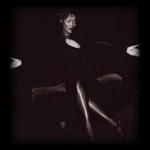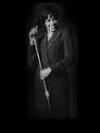 |
 |
 |
 |
 |
 |
Judy Clay... Soul singer whose career floundered in the face of American racism; Billy Vera Friday July 27, 2001 Judy Clay, who has died aged 62, was a hell of a singer. But, apart from two duets with me, Storybook Children (1967) and Country Girl-City Man in 1968, and two records later that year with William Bell, Private Number and My Baby Specialises, she had no chart success. This must have been no small source of frustration. You can't have a voice as good as hers and not know how good you are; she was, arguably, one of the best in her adopted family, which also included Dionne and Dee Dee Warwick, and Cissy and Whitney Houston, as well as her own sister, Sylvia Shemwell. As an act, Judy and I - Billy Vera and Judy Clay - were notable for being the United States' first racially integrated duo, a fact which, even in the 1960s, prevented us from being seen on national television. Other than an appearance on Hy Lit's show on WKBS in Philadelphia, and one on Robin Seymour's Swingin' Time in Detroit, our little revolution was never televised. In New York, the Clay Cole Show taped us but, once they knew our racial makeup, our segment was never aired. To add to the indignity, we went on to see our songs performed on network TV by Sammy Davis Jr and Tina Turner, and by Peter Lawford and Minnie Pearl. We were never taken up as a cause by the limousine liberals of the day. This may have had something to do with the fact that our audience was mostly everyday blacks and working-class whites. Our music was just plain old soul, so the hippie culture found nothing in us to connect with. We didn't wear leather fringe vests and bell-bottom jeans. Judy went on in floor-length gowns and my outfits were mohair continental suits. We played the Apollo Theatre in Harlem, not the Fillmore East. And that was just fine with the un-chic bridge-and-tunnel crowd and the Harlemites, who gave us standing ovations, even as bloody riots were taking place across the Hudson river in Newark, New Jersey. Our first Apollo appearance was during those riots, and stage manager Honi Coles, fearing that we might not be well received, put us second on the bill, the spot usually reserved for the weakest acts. After the first house, he came to our dressing room and said, "I'm moving you to right before the star's spot; ain't nobody gonna follow you two." Given today's unfortunate state of race relations in the US, it is hard to imagine what an act like ours meant to an older generation of black Americans, to whom integration and assimilation were goals. I recall coming off stage one night after we had stopped the show - and been forced to do an encore of Storybook Children - and seeing Judy's "aunt", Cissy Houston, crying tears of joy and hope in the wings, with her four-year-old daughter Whitney in her arms. Judy was born Judy Guions in St Paul, North Carolina, and soon moved to Fayetteville, where she was raised by her grandmother. She started singing in church as a small child. Moving to Brookyn in the early 1950s, she continued her church singing, indeed her choir featured on Sunday night radio. By her early teens, she had been adopted by Lee Drinkard, of the famous gospel group, the Drinkard Singers. Lee was Cissy Houston's sister and Dionne Warwick's mother - and Judy was soon involved in the group with them, as well as with Dionne's sister Delia, Dee Dee Warwick. The Drinkard Singers released three albums in the 1950s which featured Judy - the Newport Spiritual Stars record in 1954, a live album from the Newport jazz festival and a 1958 studio LP. Judy's voice could raise the roof and stir the soul; if you ever run across a copy of that 1958 RCA Victor album, grab it and see what I'm talking about. In 1961, Judy recorded More Than You Know/ I'd Thought I'd Gotten Over You as a solo artist. More singles followed, on Ember, Lavette, Scepter and Stax. Then, on Atlantic in 1968, came our Story Book Children/ Really Together. Many years after Judy and I had performed at the Apollo, the legendary manager of that theatre, Ralph Cooper, pulled me from a crowd, took me in his arms and told a roomful of people how important he felt our act was. It had been seen at the time in Harlem as a giant step forward. After she had made two singles with William Bell, and a couple more solo singles, Judy and I cut one more duet, Reaching For The Moon, recorded for Atlantic at the Muscle Shoals studio. One solo single she recorded there, Greatest Love, made the r&b charts. Subsequently, she worked as a back-up singer, underwent brain surgery at the end of the 1970s, and released Stayin' Alive, recorded live in Newark. In later years, Judy and I would speak by phone once or twice a year. She was back in North Carolina, singing occassionally with Cissy Houston's baptist choir in Newark, and very proud that the baby she was carrying when we first met had grown up to become a West Point graduate. And no one was prouder than she when I finally managed to get a big hit of my own, At This Moment, some 20 years after our moment. She used to tell me, "Duets are coming back. We ought to make another record." When I was working as leader of the houseband on a late-night network talk show, I tried, and almost convinced, the powers there to book Judy so we could perform together once more. But, being the whores for ratings TV people tend to be, there was always one more flavour-of-the-week act which took precedence. With Judy's passing, we have lost a great singer who never got her due. She is survived by two sons, Todd and Leo, a brother, Raymond, and her sister, Sylvia Shemwell, of the Sweet Inspirations. • Judy Clay (Judith Grace Gatewood) singer, born September 12 1938; died July 19 2001. NEWSFILE: 3 AUGUST 2001 |
© 1996 - 2001 Manish
www.classicwhitney.com -
Disclaimer.